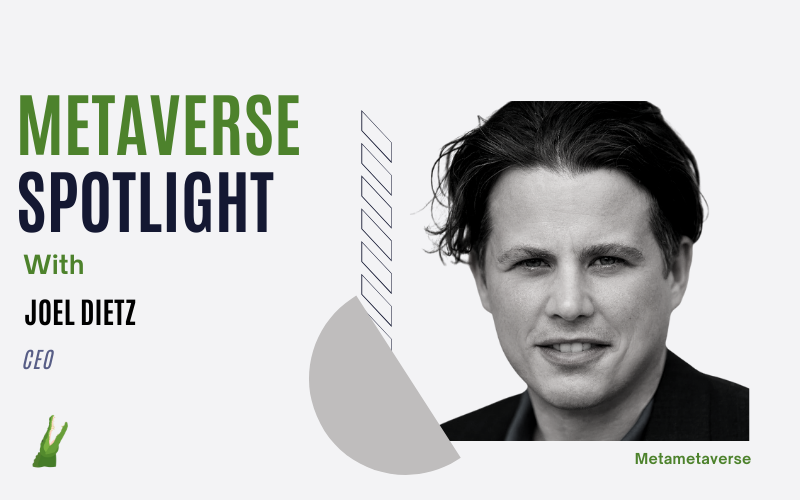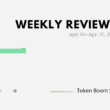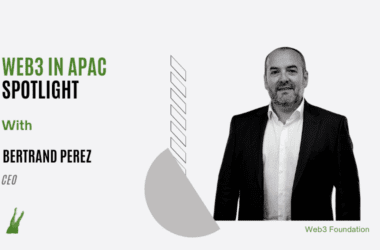Known for being a founding member of Ethereum and founding architect of Metamask, Joel Dietz’s journey in tech started at the tender age of six, when he started learning to program. At 13, he won a scholarship to study computer science at Arcadia University. While this may conjure up an image of a tech nerd, Dietz’s journey through academia was diverse.
With a voracious appetite for learning, he has studied poetry and mythology and holds academic degrees from Brown University and the University of Pennsylvania. Having been creating art since he was a child, Dietz has paved his own way in the art world and had a brief stint as an independent artist or Sundancer Studios in Berlin, where he focused on fine art photography, poetry, and essays.
His journey in crypto started with Ethereum in 2013 and since then, he has gone on to publish academic research on “cryptoeconomics”, and build the first decentralized asset and governance platforms on the Bitcoin blockchain.
Currently, Dietz is the CEO of Metametaverse, a play-to-earn game where users can earn in-game currency as they build their own metaverses. We catch up with him to find out more about his views on the metaverse and NFT space and the lessons he’s learned from being a serial entrepreneur in the Web3 world.
Please tell us about yourself and how you became a founding member of Ethereum.
I was a visual artist first and before that, I was a model and before that, I was a poet. I was active in the Berlin art scene from 2012-to 2013 and then jumped into Ethereum on day one. I don’t know if I officially qualify as a “founder” but I definitely contributed very enthusiastically during the first six months of Ethereum.
What was it like being a child prodigy in tech?
Basically like all IQ people you understand things very quickly but it is very difficult to communicate them and also very hard to slow down. I sort of solved this by being homeschooled but at the same time, I learned some things that people only learned years later, like your teachers often don’t care about the truth, some people aren’t honest and are just trying to manipulate you.
How did you get started in creating art?
I wrote my first book when I was 8 and it was about a kid who gets bored so he travels to an alien world and then has to come back and re-integrate with human society. I made a lot of drawings when I was young and it was mostly to illustrate the fantasy worlds that I was creating. I took a fair number of drawing classes during this period. Most of my fine art shows were for my photography which I started later under the influence of my girlfriend at the time. I was highly influenced by classical ideals and Burning Man-style art.
Coming from a programming and tech background, did you face any challenges in being taken seriously in the art world?
I think the fine art world is mainly built around cocktail parties and folks like myself don’t really like standing around and having these types of conversations. So my engagement in the official fine art world has been quite limited.
You previously mentioned in an interview with Venture Beat that “much of NFT space is wash trading,” have you changed your mind on that now that you’ve been creating digital art?
Not really, there are a couple of curated art marketplaces like Superrare or Foundation that do a great job but the majority of stuff has no value other than speculation. There’s still not much interest in quality digital art.
You started MetaMetaverse before Facebook’s rebrand to Meta. Has there been any concern about consumer confusion of the two platforms, which are different, but have similar names?
Yes, I was actually accidentally labelled as “CEO of Meta” during the World Government Summit (I assume because someone mis-entered it). Oddly though the person from Meta who was there was talking about how Web3 paradigms and user ownership are the future, so maybe there is some productive synergy between our metametalang and Meta as a platform.
I do see Meta as the de facto market leader when it comes to metaverse projects, but what we are doing is the cutting edge of innovation and not something that they can really attempt since they are corporate and not Web3 native. We did consider changing names for SEO reasons but the team was against it because it would have messed up our rhythm.
What piqued your interest in the metaverse and where did you first hear about it?
I sold a bunch of Ether at $12 and funded some VR/AR projects which included a 3D fractal simulator, a VJing app, and a virtual reality real estate app. So I was more doing VR (and reading sci-fi) since they existed.
What is MetaMetaverse working on at the moment and what can users look forward to?
We are doing our first Mars DJ set this weekend, and our private network of VOX and cube owners is organising and doing some pretty cool events. We are very customer focused and innovating very rapidly on the metaverses that our users most want us to build.
How do you plan to scale Metametaverse?
The platform dynamically loads metaverses as you are going towards them and you have spatial audio in the context of the cube you are in. Turns out our structure of cubes inside cubes makes this very straightforward and there’s no reason we can’t extend it indefinitely. We already are working on self-hosted cubes with their own data URL and you can also easily push this across decentralized file storage services.
What are some of the most important lessons you’ve learnt through founding these different projects ranging from Ethereum, Metamask, Swarm, ArtWallet to Metametaverse?
You need dedicated people, honest people, hardworking people, folks with vision, and a willingness to adapt to the market conditions and work past regulatory barriers. So basically it’s all a people problem in the end and it is tricky to find all the attributes you want in a single person or team.
Are there any projects that didn’t work out? What are you looking to work on next?
Swarm Markets looked like it died, both because of regulatory reasons, because of a drop in Bitcoin price, and because the early ICO market dried up during a crypto winter. Thankfully we got some very persistent people that helped work through all the regulatory issues to build something compliant but that took five years and wasn’t nearly as profitable so far as building yet another layer 1 blockchain or something that many of the early Ethereum people went and did.
I guess I do have a bit of mild ego envy at spending on “good things for humanity” that aren’t super profitable so I guess I want to focus on highly profitable projects for a bit.
You’ve been at the forefront of founding crypto products to a metaverse platform, how do you spot the next big wave in the Web3 space?
I have a history of being first and I guess it is because I’m always interested in doing something that hasn’t been done before. I’m a natural explorer and I don’t really judge my success based on what people around me are doing. Lots of people are doing some kind of metaverse thing these days but I think it will take even the early adopters of metaverse another 2-3 years to realize how innovative what we are doing with metametalang is. Also, I read deeply and widely, love history, and basically ignore people I think are slow or have bad intentions.
Stay up to date:





